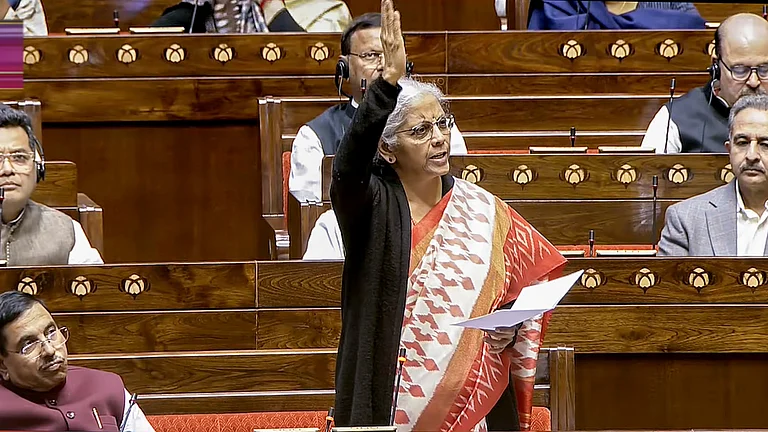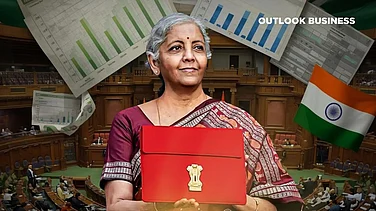With the budget around the corner, the deep tech sector has lots of expectations from the upcoming budget ranging from tax breaks, investment in R&D.
Beerud Sheth, CEO and Co-founder, Gupshup speaks about the sector’s expectation from the upcoming Budget, the deep tech start-up policy, the skilling gap in the AI sector and more.
Now that the second phase of Startup India is also focused on the deep tech space, what are your expectations from the upcoming budget?
Driving innovation and positioning the country as a technological powerhouse are central to India’s technological revolution. The upcoming budget presents a significant opportunity for this burgeoning sector to drive growth and put India as a prominent player on the global technology map. To achieve this, the ecosystem and the government need to work in tandem, and foster an environment that promotes mutual collaboration. Given the deep tech sector in particular is faced with diminishing funding, it would be ideal to see targeted enhancements in funding and incentives. To empower these start-ups in their crucial initial stages, expansion of financial support mechanisms will be key.
This could include grants, low-interest loans, and tax breaks specifically tailored for deep tech companies. Establishing dedicated deep tech funds would further ensure a steady flow of investment into this high-potential sector, ultimately stimulating private-sector innovation. In line with the same thought, fostering mechanisms that attract foreign investment are also going to be vital for nurturing the growth of deep tech businesses in India.
Another area which will benefit from budgetary allocation will be R&D. Ultimately, investing in R&D will build the foundational blocks for entirely new technological ecosystems, which we’ll experience in the future.
In terms of taxation for the deep tech sector, do you have any expectation?
Deep tech start-ups are crucial for India’s technological and economic growth, and therefore a supportive tax regime will not only help with the ecosystem flourish, but also in myriad other ways. Lowering the entry barrier, boosting investment, fostering long term growth and putting India’s start-ups at par with its global peers are some of the things that a conducive tax regime can enable. Special tax breaks, particularly for high-growth areas like AI, robotics, and biotechnology, could provide breathing room for reinvestment. Additionally, streamlining tax compliance procedures would be a welcome move.
If deep tech start-ups don't have to navigate complex tax filings, regulatory roadblocks, or lengthy approval processes, it gives them a breather to free up valuable resources and dedicate more time to core activities like the cutting-edge research and development that drives innovation. Further incentivizing R&D through targeted tax breaks can act like rocket fuel, and act as an enabler.
Addressing these concerns around angel tax and MAT would also be crucial. By either revising the regulations or offering tax exemptions for angel investments could present a critical source of funding for early-stage deep tech ventures.
It is reportedly expected that the deep tech start-up policy will be soon presented before the Cabinet. How do you think it will help deep tech start-ups?
The deep tech ecosystem is on the brink of a revamp, which can be attributed to the much-anticipated National Deep Tech Startup Policy. It will enable innovation, ultimately leading to economic prosperity and societal improvements through the practical application of deep tech research. Tailored support for each stage of growth, from grants and seed funding to financial incentives and infrastructure support, will significantly improve the overall health of the deep tech ecosystem. The policy's focus on research and development, intellectual property rights, and access to capital like the deep tech capital guidance fund will streamline resource allocation and reduce entry barriers. This will provide a much-needed runway for start-ups to mature, collaborate with academia, industry, or each other, and ultimately bring their innovative solutions to market.
In terms of skilling and staffing, is there a gap in the industry that can be filled through the budget?
The struggle to find quality talent isn't unique to AI as an industry, and the deep tech ecosystem is feeling the heat too. Lack of skill sets represents a major hurdle for the sector. If the upcoming budget allocates funds for specialized training and certification programs for key areas like AI, machine learning, blockchain, and biotechnology, it could help equip thousands of individuals with the necessary skills. For start-ups, they get access to good talent while creating thousands of employment opportunities. It’s a win- win bet. Further, fostering collaborations between industry and educational institutions can ensure that the graduates are ready to enter today’s modern workforce - which means investing in initiatives like scholarships, bootcamps, and reskilling programs for existing employees.
All these measures come with a proven track record; for instance, at Gupshup, introducing upskilling programs in AI, Data Analytics, Machine Learning has helped our team become more attuned with industry demands and the organization’s need. This is still a small sample set. Imagine arming thousands of graduates with these new skills. It can change the game.
In the April-June quarter, funding for AI start-ups in India was $8.2 million, down 82 per cent year over year and roughly 91 per cent sequentially. On that note, how do you think the upcoming budget can help enhance funding for deep tech start-ups?
To make progress, increasing grant-based seed funding and offering long-term, low-interest loans will be a good starting point and will provide the necessary capital for these start-ups to scale their businesses. Moreover, offering fiscal incentives such as tax incentives to attract domestic venture capital and angel funds will stimulate private investment in the sector providing easier access to capital for the start-ups. Additionally, encouraging sector specific grants can also help ensure a steady funding flow. These initiatives will not only bridge the funding gap but also ensure that Indian start-ups have the necessary ammunition to compete at a global scale.
The Cabinet cleared up the Rs 10,000 crore plan to set up computing capacity in March. In terms of computing capacity, what are your expectations from the upcoming budget?
The recent approval of the ₹10,000 crore plan to further strengthen computing capacity is a positive sign. While there has been progress in bolstering India’s computing capacity, the ecosystem could still benefit from a comprehensive budget that prioritizes access to critical computing resources. We can build on this momentum by further expanding computing infrastructure, particularly in areas critical for deep tech research. This could span from investments in advanced computing technologies like high-performance computing clusters to cloud computing initiatives. Investments like these will significantly enhance research capabilities and foster innovation across various deep tech fields.
Additionally, the budget could incentivize public-private partnerships to facilitate affordable and scalable access to GPUs for start-ups and researchers. This collaborative approach will ensure cutting-edge AI and deep tech innovations have access to the resources they need without crippling upfront infrastructure costs.
Broadly speaking, what are the areas where the deep tech sector faces challenges and needs immediate intervention by the government?
While the deep tech sector faces challenges spanning regulatory hurdles, securing funding, talent retention, and global competition, it is important to note that the sector is brimming with potential. A significant number of start-ups have emerged in the space over the last few years. A report by NASSCOM and Zinnov reveals that 480 new Deep Tech ventures were established, nearly double the number in 2022, making India the world's third-largest Deep Tech hub; validating the sector’s potential. The government should look to prioritize attention by creating a robust funding ecosystem through grants, low-interest loans, and venture capital incentives, which can fuel the innovation engine of deep tech start-ups. This will allow them to translate ideas into actionable, tangible solutions.
Additionally, a clear and supportive regulatory framework will foster a thriving environment for intellectual property protection and encourage deep tech companies to confidently invest in research and development, knowing their creations are valued and secured. And as I said before as well, investments in education and training programs can bridge the skills gap and ensure a steady pipeline of highly qualified professionals equipped with the latest deep tech skills, ready to propel the industry forward. Moving the needle in some of these areas can help solidify India's position as a global leader in technological innovation.































